Text
Back back back again
Long Story Short: TS Music is Queer
I analyze queer themes in Taylor Swift lyrics. Focusing on debut album to show that TS music has been queer all along. Keep an eye out here for incoming content :)
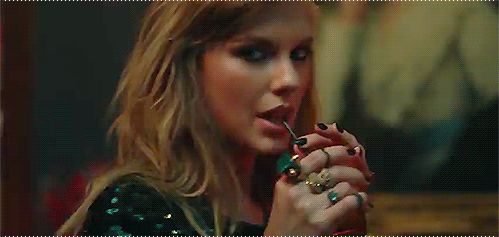
Taylor Swift (Debut Album)
Track 1: Tim McGraw
Track 2: Picture To Burn
Track 3: Teardrops on My Guitar
Track 4: A Place in This World
Track 5: Cold As You
Track 6: The Outside
Track 7: Tied Together with a Smile
Track 8: Stay Beautiful
#taylor swift#sapphic#wlw#queer#lgbtq#lesbian#music#gaylor#song analysis#queer theory#original content#mess#gaylor swift
32 notes
·
View notes
Text
Queer Theory Song Analysis: 'Should've Said No' by Taylor Swift
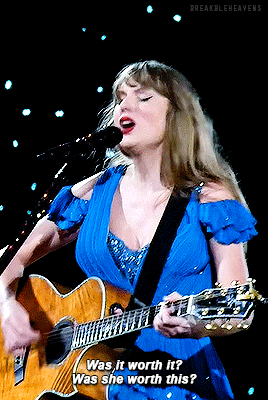
Have we talked Queer Longing? Taylor’s music embodies Queer Longing. Looking from afar, seeing everything, hoping for nothing, and memorizing every detail because you know that this is the closest you will ever get to touching.
On the surface, this song can read as your typical country song: guy succumbs to his weak nature and does a good woman wrong.
But notice that Taylor never actively genders the character she is in dialogue with as ‘male’; we as the audience, who are socialized into a heteronormative perspective, will do this for her — because we learn to link active traits, such as pursuit of sexual desires, with maleness.
But the conversation that Taylor is textually engaged with in this song is really one of activeness vs passivity, where the passive position is given the moral weight.
Now the same socialization that teaches us that agency is the right and, quite frankly, the responsibility of ‘maleness’ also teaches us that passivity is the moral essence of ‘femaleness’. Women are damsels in distress who must wait for Prince Charming, who, in turn, may only settle down once he has thoroughly exhausted himself sowing his wild oats (though of course not with the chaste object of his castrated desire).
And while taking on the mantle of female passivity can be too much for any one person to bear, this weight can be particularly crippling for queer women, whose socialization may make them feel simultaneously alienated from and by their own sexual desires. Because when women are only taught how to be desired (and have to learn on the fly how to shield themselves from the often unwanted and sometimes downright dangerous gaze of men), it can feel incredibly disconcerting and even monstrous to discover oneself in the position of desirer, particularly if the object of this desire is another woman.
While the hetero read of this song is perfectly valid, I find that Taylor’s music always gains an additional degree of complexity when examined through a queer lens.
And this song is no different. What on the surface can read as the righteous anger of a woman betrayed by a man with a wandering eye and an open fly suddenly vaults to a higher gear when viewed as a woman mocked and taunted by her own unexpressed desires, which I think can be distilled down to two narratives.
On one hand, we can see Taylor railing against the ease with which a man can casually pursue the women he desires without consequence, while she holds herself back from doing the same, due to societal and familial expectations, professional ambitions and internalized homophobia.
On the other hand, we can see a Taylor who has bifurcated herself for the same of survival, into the passive angel who yearns but never acts, and the devil who lives for the hope of it all and occasionally slips out, only to be chastised and shamed into repent by the part of herself that retains the moral high ground.
It is this latter point of view I find to be the most compelling framework from which to examine this song.
We begin with the ‘socialized' version of Taylor shaming herself for her newly discovered desire of what she considers to be base and impure impulses. Against a backdrop of immense promise, this precocious golden child can’t help but feel like she has become something grotesque.
[Verse 1]
It's strange to think the songs we used to sing
The smiles, the flowers, everything is gone
Yesterday, I found out about you
Even now, just lookin' at you feels wrong
Taylor finger wags, she shames, she extracts a concession from herself. It was a one-time impulse, a singular loss of judgment, a moment of weakness that she vows never again to let herself repeat.
[Pre-Chorus]
You say that you'd take it all back
Given one chance
It was a moment of weakness
And you said yes
Taylor creates a mantra (turn if off, like a light switch, and if you can’t, well then REPRESS, BY GOD, REPRESS!), strengthens her resolve, and she reminds herself of why she has to keep herself in check. She has a reputation to manage. She shouldn’t even have to have this conversation with herself. Her eye should be on the prize of fame and success at all times. And if this rogue part of herself would be so kind as to just shut up and disappear, she wouldn’t have to beat herself up so.
[Chorus]
You should've said no, you should've gone home
You should've thought twice 'fore you let it all go
You should've known that word
'Bout what you did with her'd get back to me (Get back to me)
And I should've been there in the back of your mind
I shouldn't be asking myself why
You shouldn't be begging for forgiveness at my feet
You should've said no
Baby, and you might still have me
Unfortunately, she can’t put this genie back in the bottle. She can’t trust herself to stick to the script and behave, now that she’s seen what lies beneath.
[Verse 2]
You can see that I've been cryin'
And baby, you know all the right things to say
But do you honestly expect me to believe
We could ever be the same?
[Pre-Chorus]
You say that the past is the past
You need one chance
It was a moment of weakness
And you said yes
But at least she can handcuff the desirous self to her disciplined self, and blindfold her, and maybe tie her ankles for good measure.
[Chorus]
You should've said no, you should've gone home
You should've thought twice 'fore you let it all go
You should've known that word
'Bout what you did with her’d get back to me (Get back to me)
And I should've been there in the back of your mind
I shouldn't be asking myself why
You shouldn't be begging for forgiveness at my feet
You should've said no
Baby, and you might still have me
Oh, oh
The great escape! The prison break! The light of freedom on her face! The desirous self is not going quietly. And for a second, Taylor loses her resolve. She longs to feel and taste and touch and know! She begs the desirous self to dish! Will she just live vicariously? Or will she throw it all away?
[Bridge]
I can't resist
Before you go, tell me this
Was it worth it?
Was she worth this?
No, no
No, no, no, no
No! (You knew this was coming). The gag goes on. The desirous self gets lowered into the trunk. This is Taylor’s version. She is calculated. She is a business, man. And she won’t let herself get in her own way. She can do it with a broken heart.
[Chorus]
You should've said no, you should've gone home
You should've thought twice 'fore you let it all go
You should've known that word
'Bout what you did with her’d get back to me (Get back to me)
And I should've been there, in the back of your mind
I shouldn't be asking myself why
You shouldn't be begging for forgiveness at my feet
You should've said no
Baby, and you might still have me
#lesbian#queer theory#sapphic#song analysis#taylor swift#lgbetty#lgbtq#queer#wlw#music#original content#should've said no#gaylor swift#gaylor#friends of dorothea#reproductive rights#pro choice#bodily autonomy#reproductive health#abortion rights#lgbtqia#lgbt#queer stuff#gender identity#lgbtq community#lgbt pride
19 notes
·
View notes
Text
Taylor is a mess right now but I did some spring cleaning this weekend and found I had some energy to devote to this dormant project xx
Long Story Short: TS Music is Queer
I analyze queer themes in Taylor Swift lyrics. Focusing on debut album to show that TS music has been queer all along. Keep an eye out here for incoming content :)

Taylor Swift (Debut Album)
Track 1: Tim McGraw
Track 2: Picture To Burn
Track 3: Teardrops on My Guitar
Track 4: A Place in This World
Track 5: Cold As You
Track 6: The Outside
Track 7: Tied Together with a Smile
Track 8: Stay Beautiful
#taylor swift#sapphic#wlw#queer#lgbtq#lesbian#music#gaylor#song analysis#queer theory#original content#mess
32 notes
·
View notes
Text
Queer Theory Song Analysis: 'Stay Beautiful' by Taylor Swift
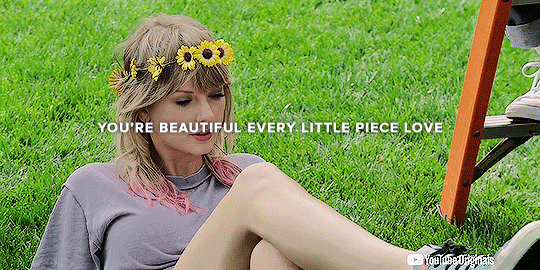
There is much literature written on the male gaze, and the fact that the camera lens has historically (and usually in the hands of male directors) reduced female subjects to mere objects of male sexual desire. Sometimes this will present like a Bond film, where the female characters exist primarily for Bond’s (and the audience’s) enjoyment and only secondarily to advance the plot. Other times, this will look more like a perfume add, where we will see a model’s neck, breasts, hands, legs, feet in stilettos – each presented in a disembodied way to obscure her humanity in order to sell a fantasy.
And while the male gaze is both a product and perpetuator of the patriarchy, it also has some basis in biology; research suggests that human brains identify women ‘locally’ (from their individual body parts) but recognize men ‘globally’ (as a whole rather than as a sum of their parts). Exhibit A: the linked article.
What I have always found interesting about Taylor’s music is the way that she (or, more generally, the singer, if she is singing from ‘the male perspective’) will embody the male gaze by reducing the subject of her songs to a series of body parts. The result, whether she intends it or not, is to position the listener so that we are consuming her song subject in the same way that society might have us consume its female muses – beautiful body part by beautiful body part.
[Verse 1]
Cory's eyes are like a jungle
He smiles, it's like the radio
He whispers songs into my window
In words that nobody knows
There's pretty girls on every corner
They watch him as he's walking home
Saying, "Does he know?"
Will you ever know?
Here, in Verse 1, we encounter the shimmering mirage known as Cory. We cannot know him, as he does not exist as a three-dimensional person with hopes and dreams and agency. Instead, we must infer him -- the argumentative, antithetical dream girl that he is – from his eyes, his lips, and from the desire he arises in us. He is wanted, but he does not want. Or perhaps, it is because he does not want, that he is wanted.
[Chorus]
You're beautiful, every little piece, love
Don't you know you're really gonna be someone?
Ask anyone
And when you find everything you looked for
I hope your life leads you back to my door
Oh, but if it don't
Stay beautiful
And as if to give words to the male gaze, the chorus loses all sight of a differentiated ‘Cory’, instead evoking a feast of drumsticks and thighs. We are now vibrating with the collective hum of desire, consuming beautiful pieces of flesh until we are satiated and content to only ogle from afar.
[Verse 2]
Cory finds another way to be
The highlight of my day
I'm taking pictures in my mind
So I can save them for a rainy day
It's hard to make a conversation
When he's taking my breath away
I should say, "Hey, by the way"
The second verse tries to resume focus on Cory, but our dream girl is so ethereal that we cannot even capture her on film. Rather, she lives entirely in our mind’s eye, where we can masturbate to the idea of her, but never have to engage with her messy humanity.
[Chorus]
You're beautiful, every little piece, love
Don't you know you're really gonna be someone?
Ask anyone
And when you find everything you looked for
I hope your life leads you back to my door
Oh, but if it don't
Stay beautiful
By the time we arrive back half of the song, we finally see the truth for what it is. The male gaze does not long for a partner or an equal. It exists to subjectify. It longs to objectify. It lives to consume.
[Bridge]
If you and I are a story
That never gets told
If what you are is a daydream
I'll never get to hold, at least you'll know
And it constantly requires parts. It requires parts, so it can assemble and consume and re-assemble, a little differently this time, and re-consume, and re-assemble, differently again. Rinse. Repeat.
[Chorus]
You're beautiful, every little piece, love
Don't you know you're really gonna be someone?
Ask anyone
And when you find everything you looked for
I hope your life leads you back to my front door
Oh, but if it don't
Will you stay beautiful, beautiful, beautiful?
Beautiful, beautiful, beautiful
All of this is to say that Taylor objectifies her song subjects in the same manner that society – and our brains – objectify women. What this suggests about the true gender of her muses, well, I suppose that is for Taylor to know and us to merely deduce.
[Outro]
La-la-la
Oh-oh-oh
Oh-oh-oh-oh
Oh, but if it don't
Stay beautiful, stay beautiful
Na-na-na, na-na
#queer theory#song analysis#taylor swift#stay beautiful#gaylor swift#kaylor#lgbetty#lesbian#sapphic#male gaze#queer#wlw#original content
23 notes
·
View notes
Video
97K notes
·
View notes
Text
Long Story Short: TS Music is Queer
I analyze queer themes in Taylor Swift lyrics. Focusing on debut album to show that TS music has been queer all along. Keep an eye out here for incoming content :)

Taylor Swift (Debut Album)
Track 1: Tim McGraw
Track 2: Picture To Burn
Track 3: Teardrops on My Guitar
Track 4: A Place in This World
Track 5: Cold As You
Track 6: The Outside
Track 7: Tied Together with a Smile
32 notes
·
View notes
Text
New content my darlings. Track 7 analysis is up.
Queer Theory Song Analysis
I do song analysis of Taylor Swift lyrics using Queer Theory. I'm working in chronological order starting with the debut album, so keep an eye out here for incoming content :)

Taylor Swift (Debut Album)
Track 1: Tim McGraw
Track 2: Picture To Burn
Track 3: Teardrops on My Guitar
Track 4: A Place in This World
Track 5: Cold As You
Track 6: The Outside
Track 7: Tied Together with a Smile
#taylor swift#song analysis#sapphic#wlw#queer#lgbtq#lesbian#music#gaylor#original content#queer theory
32 notes
·
View notes
Text
Queer Theory Song Analysis: 'Tied Together with a Smile' by Taylor Swift

Canonically, the subject of this song is female. Taylor declared this in a 2007 interview to Entertainment Weekly.
“I wrote [“Tied Together with a Smile”] about one of my friends, who is this beauty queen, pageant princess — a gorgeous, popular girl in high school. Every guy wanted to be with her, every girl wanted to be her. I wrote that song the day I found out she had an eating disorder. There are a couple songs on the album like that, that are just watching other people and making observations.”
What I want to emphasize in this analysis are the words that Taylor uses when she is talking about women, both in the quote above (see: ‘gorgeous’), and in the song below (see: ‘beautiful’, ‘pretty’).
[Verse 1]
Seems the only one who doesn't see your beauty
Is the face in the mirror looking back at you
You walk around here thinking you're not pretty
But that's not true, 'cause I know you
Taylor talks about women with effortless intimacy. Though she uses stereotypically feminine adjectives and imagery to describe her female subjects, Taylor’s songwriting makes clear the delicate regard she has for the fully fledged subjects of her songwriting. Her descriptions do not serve to objectify, but to reveal. How breathtaking is the moment where she breathes life into a two-dimensional description of a woman through three short words – I know you – transforming her subject into a three-dimensional person, whose beauty is not merely superficial, but bone deep?
[Chorus]
Hold on, baby, you're losing it
The water's high, you're jumping into it
And letting go and no one knows
That you cry, but you don't tell anyone
That you might not be the golden one
And you're tied together with a smile
But you're coming undone
Delicate, too, are the terms of endearment Taylor uses to refer to women. Here in her chorus, she calls her subject ‘baby’, which is typically a pet name that someone might give their romantic partner. Yet here she wields it like the Romeo she is, ready to come to the rescue of another woman who is being drowned in her own current. And while everyone seems to be transfixed by this woman’s outward beauty, and therefore rendered blind to her distress, only our Romeo sees her clearly and recognizes the perilous state she is in.
I want to note this because common in Taylor’s work is the queer notion of not truly being seen. Less common (but no less queer) is the idea of seeing someone deeply, and differently, from an angle that no one else has access to.
[Verse 2]
I guess it's true that love was all you wanted
'Cause you're giving it away like it's extra change
Hoping it will end up in his pocket
But he leaves you out like a penny in the rain
Oh, 'cause it's not his price to pay
It's not his price to pay
This verse is a little off-putting, because it shows a side of Taylor that I think used to show up more in her older writing, but that she has largely moved beyond in more recent years. Sometimes, her reverence for women will cross over into pettiness fueled by jealously, particularly when her female muses do not see her as fully as she sees them. She fumes as she watches women ‘giving away too much of themselves’ (I am putting this in quotes because I think it reflects her way of seeing things at the time, and not my personal view) in exchange for a few scraps of affection from a man, when she is there, standing with a jukebox in the rain, ready to risk it all for them.
[Chorus]
Hold on, baby, you're losing it
The water's high, you're jumping into it
And letting go and no one knows
That you cry, but you don't tell anyone
That you might not be the golden one
And you're tied together with a smile
But you're coming undone
Oh, ooh-oh
I do think that Taylor’s righteous anger is worth noting for two additional reasons.
First, I think that this kind of frustration might be familiar to wlw audiences, who can’t see what their peers find attractive in these [in this case] high school boys, and therefore, are somewhat bewildered by the lengths their female friends would go to in order to get these boys to notice them, and the resulting poor treatment they would put up with in this quest.
[Chorus]
Hold on, baby, you're losing it
The water's high, you're jumping into it
And letting go and no one knows
That you cry but you don't tell anyone
That you might not be the golden one
And you're tied together with a smile
But you're coming undone
But second, Verse 2 is the earliest instance I have found of a common theme in Taylor’s work, which is seeing men only as shiny toys with a price – that is, as objects to be bought but never valued. Here, Taylor shames her subject for investing in someone who does not see her worth; but in doing so, inadvertently shows her own cards. What she reveals has nothing to do with the character of her friend, but is rather evidence of Taylor’s own value system: the intrinsic value she sees in women, and the inherent worthlessness with which she regards men.
[Outro]
You're tied together with a smile
But you're coming undone oh
Goodbye, baby
With a smile, baby, baby
My overall takeaway from this analysis is less for us to focus on the queer themes in this particular song (though they are present); but rather, for us to note the ways in which Taylor canonically describes and refers to women, both in her music, but also in her interviews.
I posit that Taylor’s catalogue uses stereotypically feminine descriptors (see: ‘gorgeous’; ‘your sweet disposition’) and imagery (see: ‘long hair slicked back’; ‘your braids like a pattern’) to describe her love interests, even when male pronouns are used; and that there is no qualitative difference between the descriptors she uses when referring to persons she has told us are women (such as the subject of this song; see: ‘Goodbye, baby, with a smile, baby, baby’), compared to persons who (due to the heterosexism we are socialized into) are assumed by the fandom to be men (see: ‘All this time how could you not know, baby? You belong with me’).
#taylor swift#song analysis#sapphic#wlw#queer#lgbtq#lesbian#music#original content#tied together with a smile#queer theory#gaylor swift
9 notes
·
View notes
Text
New post is up! 'Track 6: The Outside'
Queer Theory Song Analysis
I do song analysis of Taylor Swift lyrics using Queer Theory. I'm working in chronological order starting with the debut album, so keep an eye out here for incoming content :)

Taylor Swift (Debut Album)
Track 1: Tim McGraw
Track 2: Picture To Burn
Track 3: Teardrops on My Guitar
Track 4: A Place in This World
Track 5: Cold As You
Track 6: The Outside
32 notes
·
View notes
Text
Queer Theory Song Analysis: ‘The Outside’ by Taylor Swift

Every time I revisit Taylor’s early work, I am moved by how world-wise she was at such a young age.
On the surface, we can read a typical teenage desire to find one’s place in the world. But as we discussed in our analysis of ‘A Place In This World’, a deeper melancholy is right under the surface, suggesting not just a longing to discover one’s place, but a place at all.
This profound loneliness that comes from looking at the world as it has been presented to you – by your parents, by your friends, by movies and music, and by society as a whole – and not recognizing yourself anywhere in that vast landscape, is what I read as queer.
Queer theory necessitates that one takes a step outside the traditional binaries and frameworks to see the world as would an outsider looking in. Of course, anyone who occupies one of any number of marginalized identities will come by this view naturally. But these goggles can also be put on for academic study, and it is from this framework that we will examine the sixth track on Taylor’s debut album, ‘The Outside.’
[Verse 1]
I didn't know what I would find
When I went looking for a reason, I know
I didn't read between the lines
And, baby, I've got nowhere to go
I tried to take the road less traveled by
But nothing seems to work the first few times
Am I right?
Because this song only has two unique verses and a chorus, it reads more as a mood board or a meditation on a feeling rather than a storytelling vehicle.
From the first verse, we can see that the narrator has embarked on a journey in search of meaning; but is currently only grinding their gears. Yet despite the mud on their tires, they retain a youthful optimism that the journey will be worth it in the end. This suggests that they possess a wisdom beyond their years that insulates them from the pain of a few false starts.
But it is possible that the narrator has no other choice other than to retain this sense of hope. Otherwise, the feeling of alienation that can arise from realizing that the world you know has no place in it for the person you are discovering you are, can be too much to bear.
[Chorus]
So how can I ever try to be better?
Nobody ever lets me in
I can still see you, this ain't the best view
On the outside looking in
I've been a lot of lonely places
I've never been on the outside
And in fact, as the chorus begins, we start to see how thin this layer of hope really is. Exhausted from putting on a brave face for the world, the narrator begins to crumble from the pressure, revealing their tremendous vulnerability.
At the core of this vulnerability is a profound sense of loneliness. It is as if they are standing outside a window, looking in on a glamourous party that they haven’t been invited to.
But their loneliness is also accompanied by a sense of desperation; they have no idea how they will make themselves into someone worthy of an invite if there is no one at the party who is willing to step away from the revelry to let them in the door.
[Verse 2]
You saw me there, but never knew
I would give it all up to be
A part of this, a part of you
And now it's all too late so you see
You could've helped if you had wanted to
But no one notices until it's too
Late to do anything
But as Verse 2 reveals, even if -- through artful bait and switch -- the narrator managed to play the part of one of these partygoers so flawlessly that they were granted an invitation, they would never be able to let loose and rejoice like the other guests.
Because this is a party of people who have never had to question their place in the world because they have grown up seeing representations of themselves. And the narrator will never be able to unburden themselves like the other guests can, because they will never be able to unknow the profound loneliness that accompanies their condition.
They will always bear the weight of their magnificent curse.
And so the narrator becomes mired in the angst of the chorus and is unable to recapture their initial optimism in order to pen a third verse or even a bridge.
[Chorus]
So how can I ever try to be better?
Nobody ever lets me in
I can still see you, this ain't the best view
On the outside looking in
I've been a lot of lonely places
I've never been on the outside
[Bridge]
Oh yeah
The song ends with the narrator lost in the stages of grief:
[Chorus]
… Bargaining …
So how can I ever try to be better?
… Anger …
Nobody ever lets me in
… Depression …
I can still see you, this ain't the best view
On the outside looking in
… and Denial.
I've been a lot of lonely places
I've never been on the outside
[Outro]
Oh-oh
Oh, oh-oh
Oh-oh
Oh-oh
#taylor swift#song analysis#sapphic#wlw#queer#lgbtq#lesbian#music#original content#queer theory#gaylor#the outside
7 notes
·
View notes
Photo

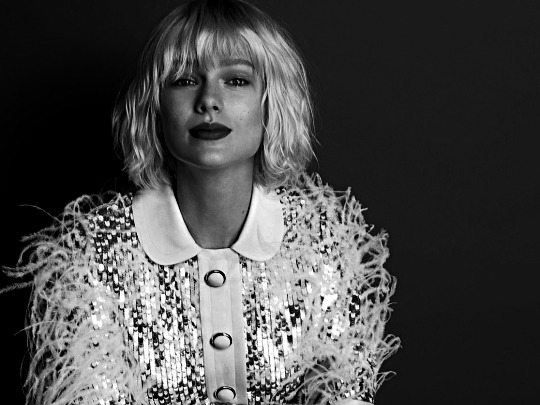
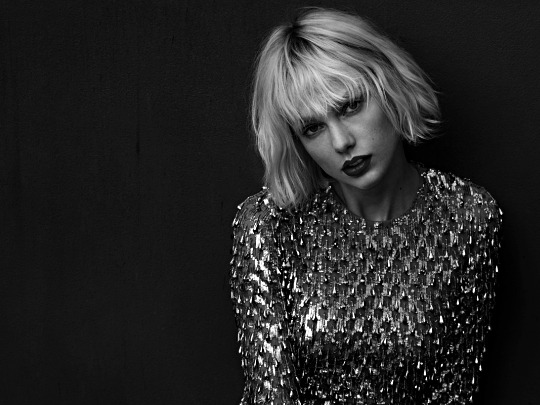

“Going through different phases is one of my favorite things about fashion. I love how it can mark the passage of time. It’s similar to my songs in that way—it all helps identify where I was at in different points of my life.”
2K notes
·
View notes
Photo

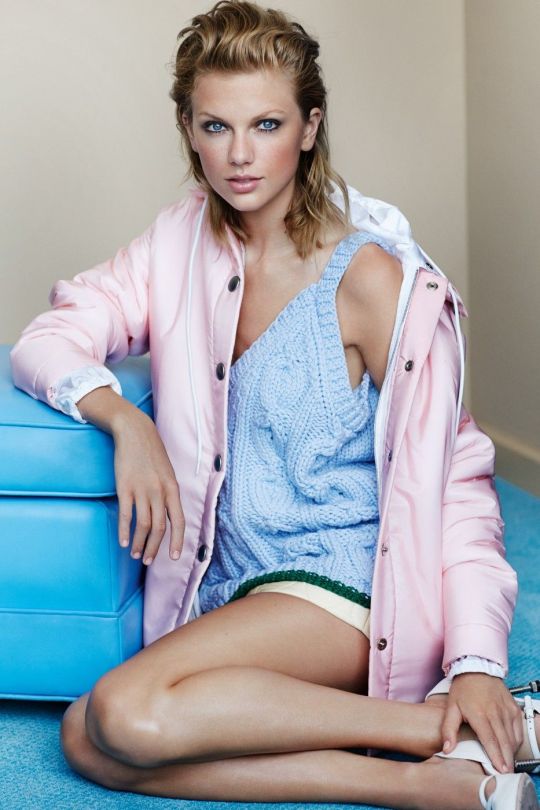
taylor swift x mario testino for vogue uk, 1989 era
56 notes
·
View notes
Text
Queer Theory Song Analysis: ‘Cold As You’ by Taylor Swift
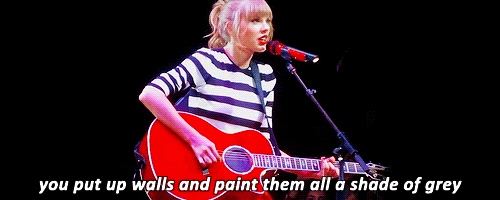
I’ve been contemplating how to approach this song for a few days because on the surface, it is a pretty straight forward entry in the TS queer song canon due to its gender-neutral pronoun usage. As such, I wanted to take a deeper look into some of the motifs of the song to see what gems we can mine.
As with much of Taylor’s early work, the narrative of this song is existing mostly inside the narrator’s head; and while the nature of the relationship at the center of this song is not explicitly defined, we are given clues as to how it made the narrator feel, which in some ways might be more truthful than what objectively transpired.
Unlike other early TS songs, where the narrator is the character doing the thinking / feeling, and the ‘he’ or ‘you’ is the object of these feelings but not an actor in their own right, this song does attribute some agency to the ‘you’ character; they take, they do what they want, they walk way, they never say.
But these actions and motivations are all alleged or imagined by the narrator, rather than documented or remembered.
This is not to say that these characters did not interact in real life, or that the narrator’s feelings are not valid; but rather to suggest that this song represents more of an existential breakdown than a real life break up.
Unrequited love is, of course, a trope in normative pop culture; and Taylor’s songs perfectly capture the sometimes-exhilarating, often-painful experiences of teenage desire, regardless of its subject or object.
But longing is also a prominent feature of queer culture, and a fixture of the queer experience, particularly when you consider the added layers of complexity it has over cishet longing – namely, heteronormativity and the lack of examples of queer relationships to role model; societal and internalized homophobia and the very real danger that can be its end result; and the mere fact that only a minority of the population identify as queer, which means that, statistically, a lot of queer peoples’ crushes will be on straight people, and that the odds of rejection will always be high.
That the narrator longs for, and feels rejected by, ‘you’ is clear within the context of this song; the narrator is not what ‘you’ wanted; is waiting for words that ‘you’ will never say; is counting all the scars ‘you’ left on her heart.
However, it remains open question as to whether ‘you’ is actually aware of the narrator’s feelings – and whether ‘you’ is even aware of the narrator, as a romantic possibility, at all.
Of course, it is an inherent fact of queer longing that the person who has caught your eye may be incapable of noticing you back. But it can be uniquely painful and isolating when the person you are pining for is a friend, who knows you deeply, and who clicks with you on every level, and who loves you completely – but platonically.
This simultaneous visibility and inability can make for a deeply personal form of rejection -- at least a rejection would mean that you had been a contender -- which can leave the person whose feelings are unrequited feeling invisible, and magnificently cursed.
[Verse 1]
You have a way of coming easily to me
And when you take, you take the very best of me
So I start a fight cause I need to feel something
And you do what you want 'cause I'm not what you wanted
[Chorus]
Oh, what a shame, what a rainy ending given to a perfect day
Just walk away, no use defending words that you will never say
And now that I'm sitting here thinking it through
I've never been anywhere cold as you
[Verse 2]
You put up walls and paint them all a shade of gray
And I stood there loving you and wished them all away
And you come away with a great little story
Of a mess of a dreamer with the nerve to adore you
[Chorus]
Oh, what a shame, what a rainy ending given to a perfect day
Just walk away, no use defending words that you will never say
And now that I'm sitting here thinking it through
I've never been anywhere cold as you
[Bridge]
You never did give a damn thing, honey, but I cried, cried for you
And I know you wouldn't have told nobody if I died, died for you
(Died for you)
[Chorus]
Oh, what a shame, what a rainy ending given to a perfect day
Every smile you fake is so condescending
Counting all the scars you made
And now that I'm sitting here thinking it through
I've never been anywhere cold as you
#taylor swift#song analysis#sapphic#wlw#queer#lgbtq#lesbian#music#original content#cold as you#queer theory#gaylor
11 notes
·
View notes










